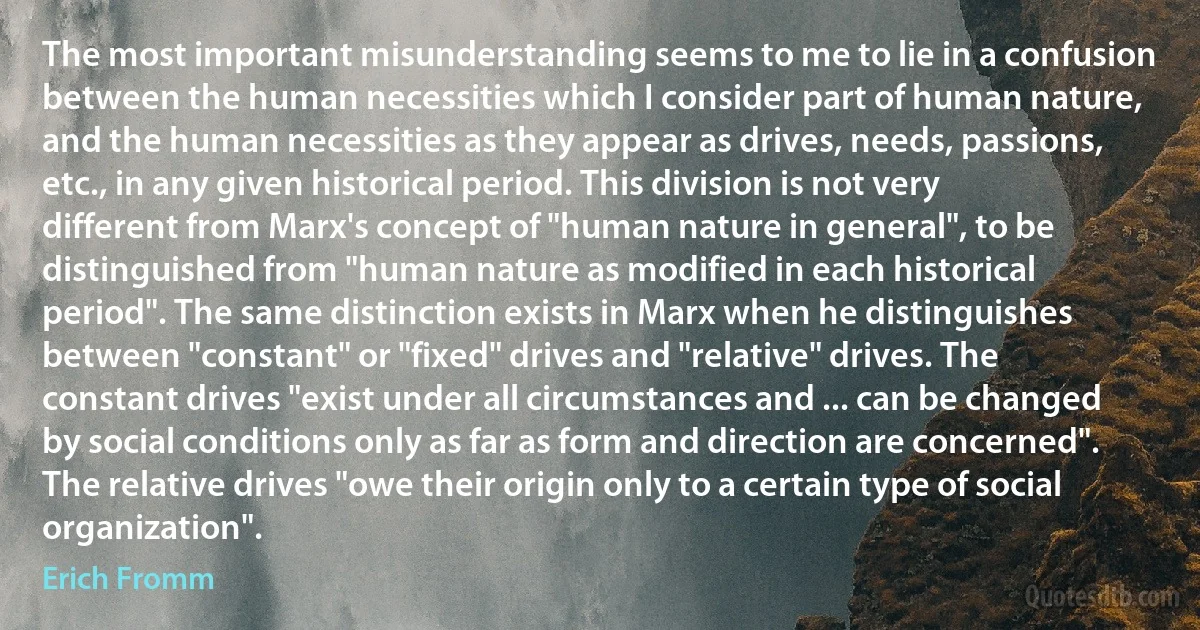Period Quotes - page 87
During the American Constitutional Convention, just before the convention, there was in Hartford, Conn., one day a storm which overcast the United States, and in that religious day men fell on their knees and begged a final blessing before the end came. The Connecticut House of Representatives was in session and many of the members clamored for immediate adjournment. The speaker of the house, one Colonel Davenport, came to his feet and he silenced the din with these words: "The day of judgment is either approaching or it is not. If it is not, there is no cause for adjournment. If it is, I choose to be found doing my duty. I wish, therefore, that candles may be brought."
I hope in a dark and uncertain period in our own country that we, too, may bring candles to help light our country's way.

Abraham Davenport
...I think Disney personifies some of the American ideals in art and in culture in total, because what he was trying to do and specifically with Fantasia. And it was the spirit of the thirties, I believe; it was the post-Depression period, where people were trying to think popular art, art that was consumable by the masses high art that could be put in a tin or another form, a package...

Carlos Almaraz
In order to excel at anything, there are always hurdles, obstacles, or challenges one must get past. It's what bodybuilders call the pain period. Those who push themselves, and are willing to face pain, exhaustion, humiliation, rejection, or worse, are the ones who become champions. The rest are left on the sidelines.

Neil Strauss
An illustrious Circle, overcome by the artistic beauty of the forces under his command, threw aside his marshal's baton and his royal crown, exclaiming that he henceforth exchanged them for the artist's pencil. How great and glorious the sensuous development of these days must have been is in part indicated by the very language and vocabulary of the period. The commonest utterances of the commonest citizens in the time of the Colour Revolt seem to have been suffused with a richer tinge of word or thought; and to that era we are even now indebted for our finest poetry and for whatever rhythm still remains in the more scientific utterance of these modern days.

Edwin Abbott Abbott
A story's narrative demands ebb and flow when so much time is covered. There has to be change in order to create movement in a story. And then again, the time period and the culture had a lot to do with their staying power. Today, the world is much more fast paced, and hitting a stagnation point might mean the end of a relationship.

Gail Tsukiyama
Two aphorisms about Rembrandt's paintings were drawn from his early biographies and repeatedly attributed to the artist by the French writers: 'A painting is finished when the artists says that it is finished' and 'A painting is not made to be sniffed', but contemplated from a distance.. .These paintings were identified with the latter years of Rembrandt's life, the period in which critics said he suffered most from financial pressures and a lack of public acclaim. Works identified with these final years were the most popular in France during the last decades of the nineteenth century.

Rembrandt
During a later period of his life, Rembrandt became bankrupt, mainly through his own extravagance... he could not help but collect things. At this time, his marvelous collection of paintings, jewels, swords, armor and precious costumes were publicly sold for a pittance. He had to leave his big, beautiful house in the fashionable part of Amsterdam and go to a very poor quarter. His original, fine house is now open to view. He dressed his subjects in oriental costumes, weapons and armor to give a rich, romantic and mysterious radiance to his paintings. At the same time he was a very down-to-earth Dutchman with a passion for reality. His art is the synthesis of a tremendous attraction to reality, with a need to draw things as they really were, and a desire for the exotic, the dramatic, the radiant, the unusual and the mysterious. p. 402.

Rembrandt
The history of human thought recalls the swinging of a pendulum which takes centuries to swing. After a long period of slumber comes a moment of awakening. Then thought frees herself from the chains with which those interested - rulers, lawyers, clerics - have carefully enwound her.
She shatters the chains. She subjects to severe criticism all that has been taught her, and lays bare the emptiness of the religious political, legal, and social prejudices amid which she has vegetated. She starts research in new paths, enriches our knowledge with new discoveries, creates new sciences.
But the inveterate enemies of thought - the government, the lawgiver, and the priest - soon recover from their defeat. By degrees they gather together their scattered forces, and remodel their faith and their code of laws to adapt them to the new needs.

Peter Kropotkin
The direction which the revolution will take depends, no doubt, upon the sum total of the various circumstances that determine the coming of the cataclysm. But it can be predicted in advance, according to the vigor of revolutionary action displayed in the preparatory period by the different progressive parties. ... The party which has made most revolutionary propaganda and which has shown most spirit and daring will be listened to on the day when it is necessary to act, to march in front in order to realize the revolution.

Peter Kropotkin
As Hegel called the place at the end of philosophy the "place of truth," so Marx thought that the proletariat occupies this favored position, and the psychoanalyst attributes it to the completely analyzed personality, and the philosopher of vitalism to the strongest life, to the process of growth, to an élite or a race. There are, according to these ideas, favored moments and positions in history when truth appears and reason is united with the irrational. There are moments, as I myself have emphasized on different occasions, in which "kairos," the right time, is united with "logos," the "eternal truth," and in which the fate of philosophy is decided for a special period.

Paul Tillich
I'm an utterly orthodox feminist in the political or social sense: I want equal rights for women, period, and I vote that way. I support social programs that help women and children; I'm pro-choice, in favor of anything that makes it easier for women to raise their kids, with or without men, in conventional or unconventional family units.
But do I think the world would be a better place if it were run solely by women? No; not any more than I think a solely patriarchal model is an ideal.

Elizabeth Hand
Some of the worst violence in American history occurred during the period of low partisan polarization stretching from the late Progressive era to the late 1970s-the moment for which Joe Biden waxed nostalgic. In Ivy League debate rooms and the Senate cloakroom, white men could discuss the most divisive issues of the day with all the politeness befitting what was for them a low-stakes conflict. Outside, the people whose rights were actually at stake were fighting and dying to have those rights recognized.

Joe Biden
Americans are willing to work – and work hard. But right now, an awful lot of people feel there is less and less respect for the work they do. And less respect for them, period. Democrats are the party of working people. But we haven't done a good enough job showing that we get what you're going through, and that we're going to do something about it.

Hillary Clinton
The present wind of compassion to some extent blew up, and to some extent was blown up artificially, in the two or three years before the general election and has since been prolonged by Princess Diana's death. It is now being replaced by normal politics which will lead eventually to a resumption of the gnarled, sceptical mistrust of all politicians from which Mr Blair will not be exempt and of which Lord Tebbit is the master. It would be a pity if Conservatives were to mistake a temporary aberration for a permanent obsession and were to addict themselves to a style of thinking derived from a period which is passing.

Maurice Cowling
Roberto really should not have played that second game. He was so tired from the previous night's game and lack of sleep that he passed up batting practice. But he played all twenty-five innings within a twenty-hour period... Man, when I was playing, it would take me three or four weeks to get that many hits.

Roberto Clemente
True Christianity at its most profound is as good as you get. ... I think I've been lucky in the period which I've lived through because obviously I would have been for the chop in earlier days. The Inquisition would have rooted me out; even in the 19th century I would probably have been had up by a Bishop and asked to change my views, or to keep them to myself etc.... I think that so much of our Christian beliefs ... are an attempt to convey through language something which is unsayable.

R. S. Thomas
Bill and I were pretty much the same age bracket, and strangely enough, we both went through the same influences, starting with Nat Cole, going into Bud Powell during the bebop period, and then getting into the Lennie Tristano school orienta-in my particular case, Lee Konitz more than Lennie. I mean, in an era when everybody else was playing funky piano, we... I suppose, in a general category, that made us both the same. Whereby [sic] to my mind, we were both radically different. But after I put out that first album, the reviews started off by saying, "Clare Fischer owes much to Bill Evans." And then, when I would write an album, they would say "Clare Fischer owes much to Gil Evans." And I would call that my Evans brothers syndrome.

Clare Fischer
...People who know about these things say that the short story is the most challenging form, much more so than the novel, because of the precision required; sometimes you have to achieve as much as a novel in a much shorter space and period of time. Had I known that it was the most difficult of forms, I probably would not have started with the short story...

Rohinton Mistry



